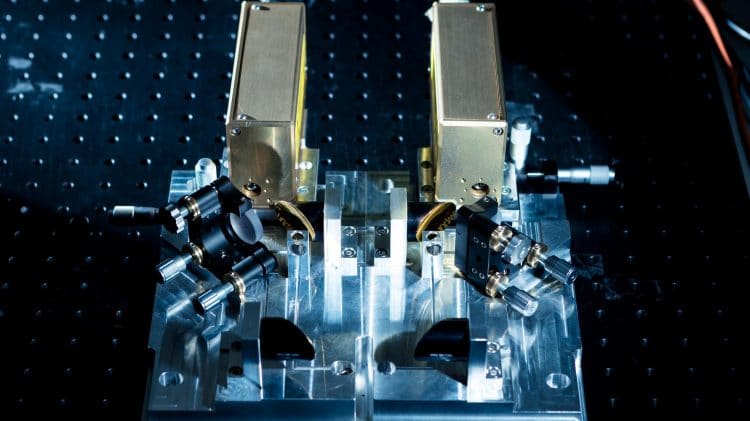
World’s first experimental 6G research environment is being built in Finland
The research infrastructure for future wireless technologies 6G-FUWIRI, which just received funding from the Academy of Finland, raises basic radio technology research in Finland to a new level – to very high sub-THz frequencies.
The experimental environment and expert service will deepen the pioneering research on next-generation wireless systems launched by the Finnish 6G Flagship programme in 2018. The funding serves as a starting point for the joint development of far-sighted research and testing environments and, at the same time, strengthens collaboration between University of Oulu, Tampere University, Aalto University and VTT Technical Research Centre of Finland Ltd.
The majority of the funding will be used to purchase very expensive measurement equipment that would be disproportionately expensive for individual research institutes. “Investments of this scale in the early stages of 6G research and their joint use will boost the international competitiveness and attractiveness of our top research teams, as similar environments are not known to be found elsewhere,” emphasizes Ari Pouttu, who leads the project at 6G Flagship.
The evolving 6G research environment creates an excellent framework especially for radio channel measurements, circuit and antenna technology research, and measurements over the air interface, which focus, for example, on device characterization. The combination of measurement devices forms a unique development platform for new methods aimed at the accuracy of centimeter(s) in positioning objects. With 6G, positioning accuracy, and imaging and sensing capabilities integrated into the same system will revolutionize the use of wireless connectivity in a wide range of applications, such as collaborative robots in needs-based adaptive factories, and digital and societal functions such as remote surgery and autonomous transportation.
“The Academy of Finland’s decision to enable experimental research of these capabilities in the 6G framework is significant in order to maintain Finland’s leading position in 6G research,” emphasizes Professor Ari Pouttu from the 6G Flagship at the University of Oulu.
Companies will benefit from the diverse experimental environment and expert service in the early stages of 6G research, gaining visibility into new business opportunities and future markets offered by emerging technologies. “The research infrastructure enables the research, development and testing of new hardware solutions, algorithms, software and applications,” confirms Jukka Mäkelä, Principal Scientist at VTT Technical Research Centre of Finland Ltd.
The new national environment for research, innovation and collaboration will have far-reaching implications. “The project is a major milestone in launching the development of a 6G research environment in Finland. The goal is to build a national research and testing environment that would last until the 2030s, when 6G technology is expected to be in the commercialization phase,” says Professor Mikko Valkama, who leads the development of the research environment at Tampere University.
Over the next five years, investments and co-development must be further strengthened significantly if Finland is to remain at the forefront of 6G technology development. “Expensive measurement devices used for R&D&I activities in both RF and network technologies must be planned to be increasingly shared in the future,” envisions Professor Jussi Ryynänen from Aalto University.
An advanced research environment requires public project funding to be productive. To support 6G research, a similar investment, which has been made for the computing environment of CSC – IT Center for Science Ltd over time, would be needed but at a faster pace. “6G research is here and now. Investment decisions are needed today,” concludes Matti Latva-aho, Director of the 6G Flagship programme.
More information
Academy of Finland funding decisions and public project descriptions.